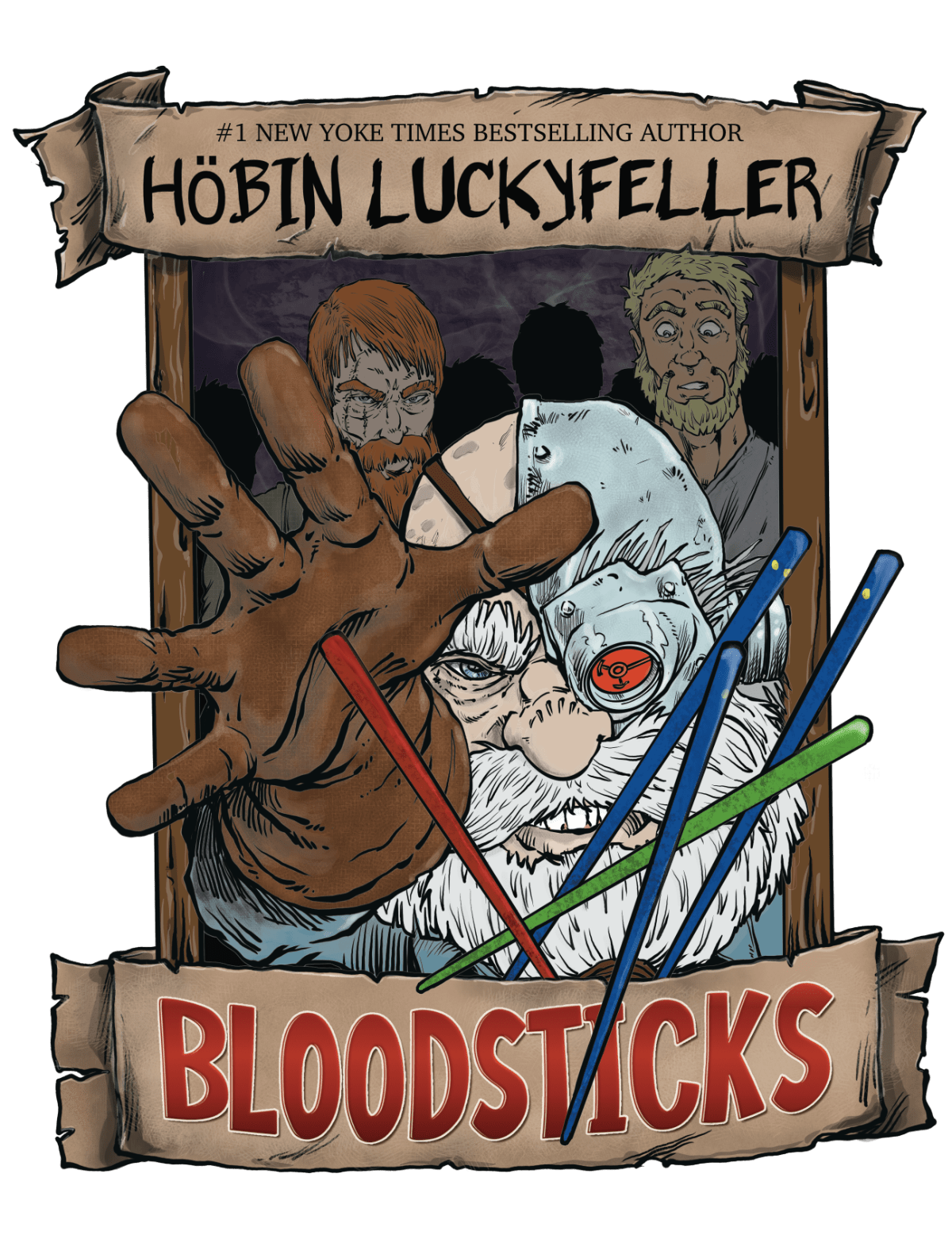Day One
It's a justified rule that visitors aren't allowed to keep their port key when they arrive at the Black Market. It would spiral the place into chaos.
This is the second award-winning work of Höbin Luckyfeller, and the second book in his Field Guide series. The script is hot and fresh and we also have a new cover for the book!
Enjoy.
When Höbin is contracted to research the popular game of chance, he quickly learns the truth surrounding its history is anything but. Circumstances unfold faster than he can anticipate, pulling Höbin from his assignment and thrusting him into the shadows of intrigue, magic…and murder.
Paid subscribers can access the entire archive of this series from the beginning, along with other stories and every article I’ve ever written. If you aren’t a paid subscriber, you can access the archive for free with a 7-day trial OR earn a paid membership by joining the referral program!
Chapter 3 - Day One
By mid afternoon, I was back at the Black Market.
Though it’s been frustrating, my exile from Clockworks City—there’s also a certain sense of freedom in living away from the gnome community. Even among the gnomes who live here, in their shops…it’s different. The small city owned and run by the Gypsies is probably as far an extreme as you’re going to get from a technologically advanced society. But it’s become home.
I still can’t believe I took this job. Fourteen days to find the back history of a game everyone plays, but few people really know about. Truth be told, who really cares? It’s a game for crying out loud. Why would anyone care about how folks lose their coin or how it contributes to drunkenness, theft, and violence? My mind keeps churning, my feet stumbling along the dimly lit path in front of me.
I nod to the Sentry perched on either side of the tunnel, huddled around their small fires. A few nod back. The constant echo of squeaking rats, hidden among the boulders and shadows, masks the low tone of their conversations. Disgusting creatures.
The rats, not the Gypsies.
When I reach the check-in point, I try to walk past the guards, but I’m stopped.
“Check your port key,” snaps a young man.
I don’t recognize his face. He must be new, so I’ll be nice.
This time.
A wonderful rebuke rolls off my tongue, but one of the older guards intervenes. “He’s alright, Amul. That’s Mr. Höbin. Iyl-Tandril has given him permission to keep his key. Let him pass.”
I bite my tongue and smile instead. It takes a moment for the information to register with the youth, but he steps aside. Few residents know what I do here. At least not to the fullest extent, anyway. My research sometimes requires special permission from those in charge. I grin patiently at Amul, spinning my attention to the older sentry. “It’s all right, Lucyd, he’s only doing his job…just like the rest of us.”
They let me slip through the line.
It's a justified rule that visitors aren't allowed to keep their port key when they arrive at the Black Market. It would spiral the place into chaos. Not only would it enable thieves to lift goods offered by merchants, it would allow violence to creep into the well-regulated peace of Gypsy society. Any ruffian or member of the darker races could commit murder and blink away unscathed. Not a good idea.
That's why the authorities have implemented specific measures that force all visitors to surrender their port keys before entering. When patrons are ready to leave, all they have to do is retrieve their key from the exit chamber by placing their fingerprint on any of the empty boxes and their personal key will appear inside. Quite clever if you ask me.
I shuffle on behind an old merchant, his back hunched over with furs strapped to shoulders.
We all wait in front of an old gypsy hunched over his podium, small bifocals teetering on the end of his bulbous nose. The steward of the gate. With the thin quill pen in one hand, he slides his bony finger down the list, calling each patron forward, asking them to state their business and the intended duration of their stay.
When the young couple behind me is called forth, I shuffle abruptly in front of them.
“Good day, Mr. Horst,” I blurt out with a genuine smile. It’s a smile I’ve practiced for months.
“What? Wait. No, no, no—this can’t be right.” The steward rises slightly, lifting his buttocks from his stool. He leans over the podium. “Mr. Höbin, this is quite irregular, you know. You are still not on the list, and it is not proper for you to come in and out of the Market without your presence being recorded!”
“Mr. Horst, my good man,” I say to soften the blow, “May I approach the pedestal, sir?” It’s always good to give respect, even when you might not feel it’s due. It serves two purposes in particular: one, you’ll soothe the angry beast, should the person have a temper—by visually and verbally submitting to their imagined authority—and; two, by displaying that you acknowledge their authority (especially if others don’t), you are likely to gain favor, which can be used to your advantage.
So it’s simple: step forward, look over your shoulder as if to make sure no one will overhear you, then speak meekly, keeping your head slightly lower than the person you’re speaking to.
“Dear Mr. Horst, I am so embarrassed! Mr. Horst, I assumed you would have been informed, given your importance. Surely you know that they have given me special permission from the Triad, so that I may
Keep reading with a 7-day free trial
Subscribe to Life of Fiction to keep reading this post and get 7 days of free access to the full post archives.






